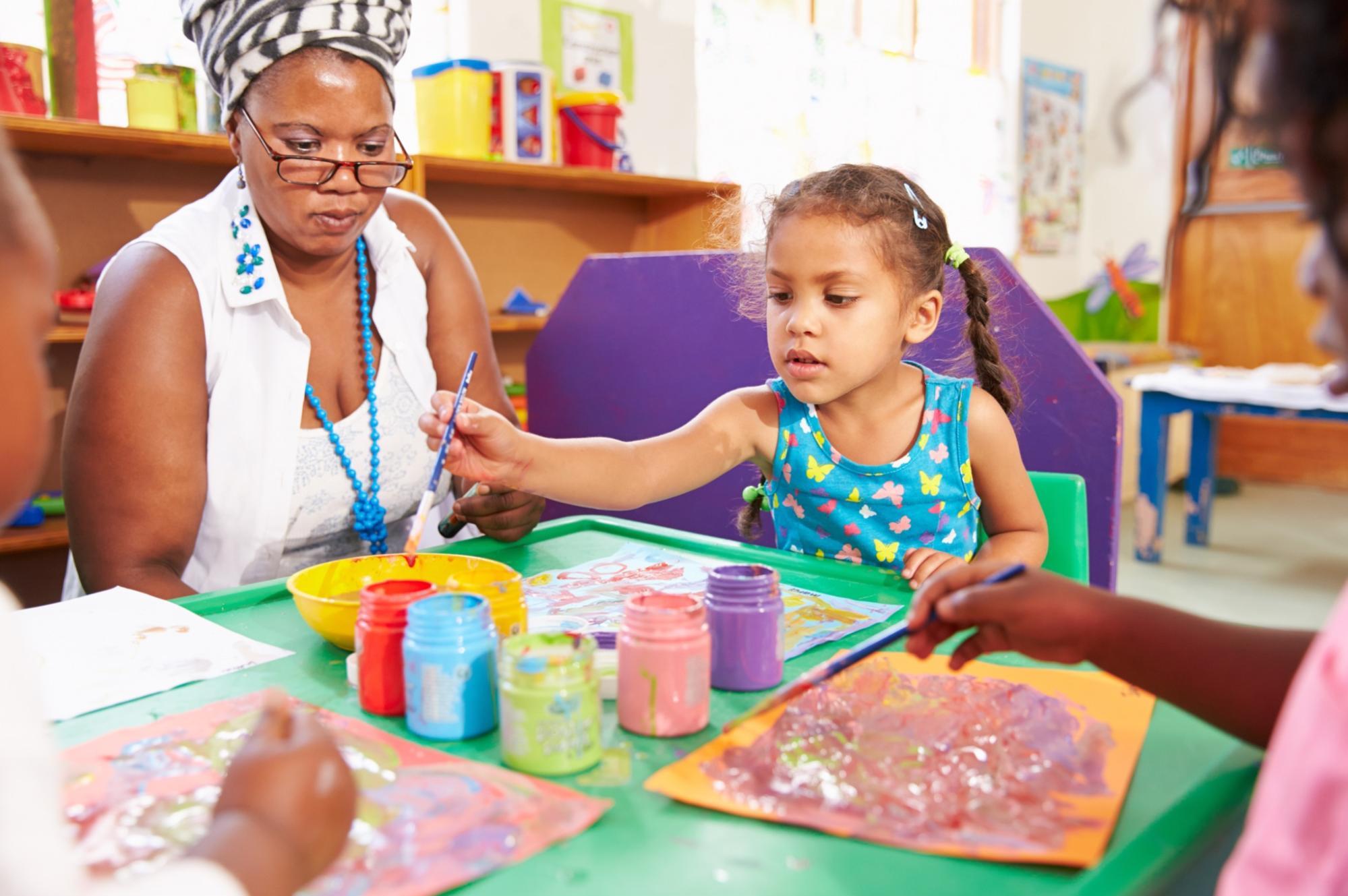Universal Transitional Kindergarten (UTK) plays a pivotal role in promoting educational equity by affording every child an equal opportunity to embark on a robust academic journey, irrespective of their background, socioeconomic status, or access to high-quality preschool programs. Extensive research demonstrates that TK is associated with wide-ranging short- and long-term benefits for students’ academic skills, academic performance, and social-emotional outcomes (see Manship et al., 2017; Gormley et al., 2005).
Among these advantages, TK has been shown to foster heightened school engagement and improved self-management skills (Manship et al.). Studies have also found that children who attend TK demonstrate increased literacy skills (e.g., word identification, phonological awareness, etc.) and knowledge of quantitative concepts compared to children who did not have access to TK (Manship et al., 2017).
As income and socioeconomic status are closely intertwined with racial and ethnic group identities in the United States, as noted by Potter et al. in 2019, and considering that achievement disparities persistently correlate with socioeconomic status and racial/ethnic identities across various grade levels, as observed by Hung et al. in 2020, Universal Transitional Kindergarten (UTK) can be instrumental in narrowing persistent achievement disparities (Andrews et al., 2012; Fitzpatrick, 2008).
In this professional learning community, participants will:
- Delve into developmentally appropriate practices tailored for children aged 48 to 60 months, focusing on aligning these practices with the behaviors outlined in the Preschool Learning Foundations.
- Expand awareness and insight into the competencies of social-emotional development, exploring their direct correlation with improved educational opportunities and reduced instances of exclusionary discipline.
We examine questions related to creating and supervising high-quality, inclusive Transitional Kindergarten (TK) programs that emphasize play-based learning. This investigation takes place within the framework of a year-long community of practice dedicated to enhancing the abilities of education leaders to execute, observe, and offer valuable feedback to educators concerning developmentally appropriate practices (DAP) and the incorporation of social-emotional competencies into Transitional Kindergarten classrooms across the Bay Area.
Topics include:
- Aligning TK learning foundations with Kindergarten standards
- Identifying assets, obstacles, and needs related to the successful implementation of TK
- Developmentally appropriate practices
- Challenging exclusionary discipline
- The domains of social-emotional development
- Fostering healthy student identities
